Relations between Iraqi Prime Minister Nouri al-Maliki and Turkish Prime Minister Recep Tayyip Erdogan have grown increasingly strained in recent weeks, particularly after Erdogan, a Sunni Muslim, urged the Shiite leadership in Iraq to resolve sectarian tensions, which have escalated in the wake of the recent U.S. military withdrawal from the country. Maliki responded by telling Erdogan to stop interfering in Iraqi affairs, with the sharp exchange between Baghdad and Ankara taking an alarming turn when several rockets were fired at the Turkish embassy in Iraq last week. According to Henri Barkey, a Turkey expert at Lehigh University, the recent […]
Iraq Archive
Free Newsletter
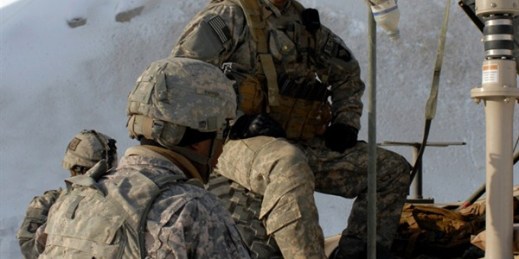
Is counterinsurgency dead, as some observers claim? Is it alive and well, as others have argued? Or is it, as still others maintain, merely evolving? One thing is certain. Once fashionable within the Washington beltway, counterinsurgency — or COIN, as it’s known — has come under withering criticism, as violence in Afghanistan escalates and the Pentagon tightens its belt. Many of counterinsurgency’s critics are convinced that the U.S. would do well to avoid such campaigns in the future. Who can blame them? The wars in Iraq and Afghanistan have extracted an ever-mounting toll in time, blood and treasure from a […]
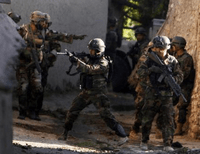
Americans often assume that insurgency is a modern phenomenon, invented by Mao Zedong and refined by his emulators. The notion permeates official thinking, including Department of Defense definitions and doctrines. In reality, insurgency has existed ever since states and empires began attempting to impose their will on people too weak to resist with conventional military means. Indeed, counterinsurgency is a common function for most states and an inevitable one for empires. That said, the strategic significance of insurgency has ebbed and flowed over time. When the chance of direct conflict between great powers was high, insurgency became background noise in […]

The first page of the U.S. Army and Marine Corps’ Field Manual 3-24 (.pdf), entitled “Counterinsurgency,” states, “Soldiers and Marines are expected to be nation-builders as well as warriors.” Authored in 2006 by Lt. Gen. David H. Petraeus, now the director of the CIA, and Lt. Gen. James F. Amos, currently the commandant of the Marine Corps, the manual essentially enshrined counterinsurgency as nation-building in U.S. military doctrine. This required U.S. soldiers and marines to undertake, in roughly proportionate measure, five tasks: safeguard the indigenous population, improve democratic governance, combat corruption, deliver economic projects and institute the rule of law […]
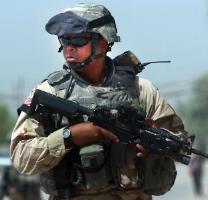
For the past several years, the widely accepted view among defense analysts had been that counterinsurgency, or COIN, represented the future of U.S. defense planning and operations. This consensus was initially driven by the belief that “effective COIN” had “won” the Iraq War, and later by the need, as former Defense Secretary Robert Gates put it, to fight “the wars we’re in.” Now things have become far less clear. Awareness has set in that the effects of the 2007-2008 “surge” in Iraq were only partial and, even at the time, only partly achieved by the shift toward conducting what we […]
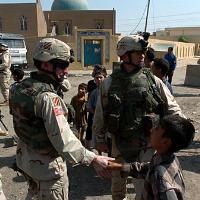
Defense policy analysts and pundits are wasting ink arguing back and forth about whether or not counterinsurgency is dead or alive. The real debate — the one that risks getting lost in the noise about counterinsurgency’s vital signs — concerns the future of the U.S. Army. As the U.S. military ends its role in Iraq and winds down in Afghanistan, the U.S. Army, alone among the armed services, has no compelling narrative for how it fits into the nation’s defense. The questions today surrounding the future of counterinsurgency are no less intense than the debates over whether or not counterinsurgency […]
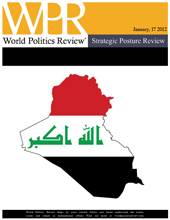
From its initial emergence as a British mandate following World War I, to the post-independence monarchy from 1932-1958, through the military coups that ushered in the rule of first the Baath Party in 1968 and then Saddam Hussein in 1979, external threats and internal tensions have characterized the history of Iraq. Now that all U.S. military forces have left the country, Iraq’s government once again faces the challenge of overcoming internal divisions, even as it becomes fully and solely responsible for Iraq’s security for the first time since the U.S.-led invasion of 2003. Iraqi leaders must manage these interrelated challenges […]

Last year was a tough one in terms of global economics, humanitarian disasters and political leadership among the world’s great powers. But it was also the year of the glorious Arab Spring and hints of similar developments in Myanmar, Russia and Ethiopia. So while the year’s “fundamentals,” as the economists like to say, weren’t so good, it left us with plenty to be grateful for as globalization continues to awaken the desire of individuals for freedom the world over. Keeping all that in mind, here is my foreign policy wish list for 2012. A decisive election in the United States. […]
